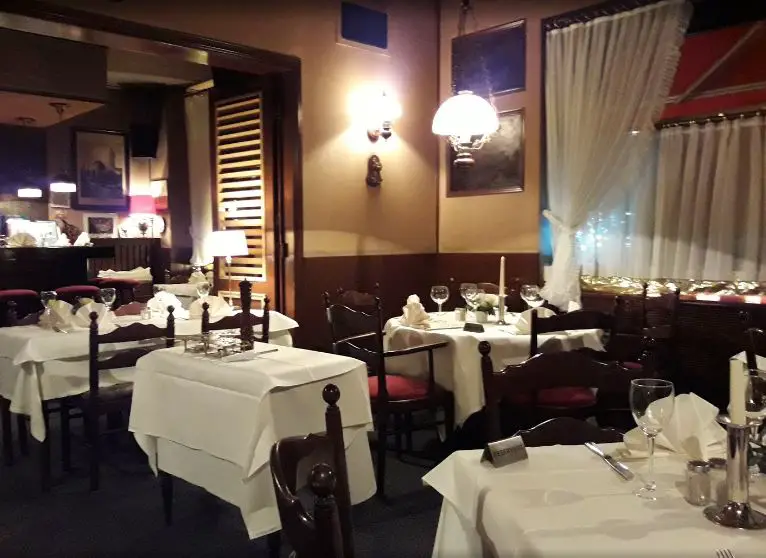Are there any dress code expectations in Germany?
Post ByAdequate Travel
Summary
Germany is a diverse country with equally diverse culture and customs. However, when it comes to the topic of dress codes, there are some general expectations to be aware of if you are planning a visit to Germany. In this blog, we will discuss what dress code expectations exist in Germany.
Stay informed about any travel restrictions or travel rules in place, as they may vary depending on your destination within the country.
Yes, there are dress code expectations in Germany, although they can vary depending on the context, occasion, and region. Here is a detailed explanation with examples:1. Formal occasions:- Business meetings and conferences: In professional settings, Germans typically dress conservatively and formally. Men often wear suits, shirts, ties, and dress shoes. Women opt for business suits, dresses, or blouses with skirts or pants.- Weddings and gala events: These events usually require more formal attire. Men often wear dark-colored suits with ties, while women may choose elegant dresses or formal eveningwear.2. Casual occasions:- Everyday wear: Germans tend to dress casually in their day-to-day lives. Jeans, trousers, skirts, t-shirts, and blouses are commonly worn. However, the level of casualness can vary, with some people preferring a more polished appearance.- Social gatherings and parties: Casual attire is often acceptable, but it's still advisable to dress neatly. Men might wear a dress shirt with trousers or jeans, and women might choose a nice blouse or dress.3. Religious sites:- Churches and religious sites often require visitors to dress modestly out of respect. Both men and women are generally expected to cover their shoulders and knees. Avoid beachwear, shorts, tank tops, and revealing outfits in these places.4. Professional workplaces:- Many German workplaces have a business casual dress code. Men may wear dress pants or chinos with a buttoned shirt, while women can opt for a skirt or well-tailored trousers with a blouse or sweater. However, some professions or companies may still adhere to a more formal dress code, particularly in conservative industries like banking or consulting.5. Cultural events:- Attending a theater, opera, or classical concert in Germany usually requires more formal attire. Men often wear suits or blazers with ties, and women opt for dresses or elegant outfits. However, this might vary depending on the specific event or venue.It's worth noting that these dress code expectations can differ from region to region, and individual preferences also play a role. It's always a good idea to observe what others are wearing in a specific context and adapt accordingly.
Yes, there are dress code expectations in Germany, although they can vary depending on the context, occasion, and region. Here is a detailed explanation with examples:1. Formal occasions:- Business meetings and conferences: In professional settings, Germans typically dress conservatively and formally. Men often wear suits, shirts, ties, and dress shoes. Women opt for business suits, dresses, or blouses with skirts or pants.- Weddings and gala events: These events usually require more formal attire. Men often wear dark-colored suits with ties, while women may choose elegant dresses or formal eveningwear.2. Casual occasions:- Everyday wear: Germans tend to dress casually in their day-to-day lives. Jeans, trousers, skirts, t-shirts, and blouses are commonly worn. However, the level of casualness can vary, with some people preferring a more polished appearance.- Social gatherings and parties: Casual attire is often acceptable, but it's still advisable to dress neatly. Men might wear a dress shirt with trousers or jeans, and women might choose a nice blouse or dress.3. Religious sites:- Churches and religious sites often require visitors to dress modestly out of respect. Both men and women are generally expected to cover their shoulders and knees. Avoid beachwear, shorts, tank tops, and revealing outfits in these places.4. Professional workplaces:- Many German workplaces have a business casual dress code. Men may wear dress pants or chinos with a buttoned shirt, while women can opt for a skirt or well-tailored trousers with a blouse or sweater. However, some professions or companies may still adhere to a more formal dress code, particularly in conservative industries like banking or consulting.5. Cultural events:- Attending a theater, opera, or classical concert in Germany usually requires more formal attire. Men often wear suits or blazers with ties, and women opt for dresses or elegant outfits. However, this might vary depending on the specific event or venue.It's worth noting that these dress code expectations can differ from region to region, and individual preferences also play a role. It's always a good idea to observe what others are wearing in a specific context and adapt accordingly.
Suggested Questions
- Würzburg Residence, Würzburg: Horror Story, History & Paranomial Activities
- Schloss Weesenstein, Müglitztal: Horror Story, History & Paranomial Activities
- Spreepark, Berlin: Horror Story, History & Paranomial Activities
- The Lichtenstein Castle, Honau: Horror Story, History & Paranomial Activities
- Hexentanzplatz, Thale: Horror Story, History & Paranomial Activities
- Frankenstein Castle, Darmstadt: Horror Story, History & Paranomial Activities











